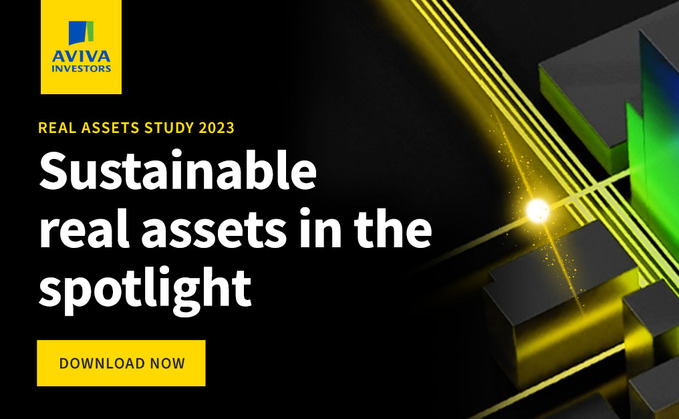
In late 2022 Aviva Investors took the pulse of decision makers at 500 global institutional investors on their appetite for real assets, including those with a sustainable focus.
Institutional investors within Europe and Asia have widely embraced responsible investment in recent years, while attitudes in North America are more divided on a topic that has become highly politicised, certainly in the United States.
Just seven per cent of those surveyed indicated they do not consider ESG and sustainability factors when investing in real assets. At the other end of the spectrum, 17% of institutional investors labelled ESG and sustainability issues as a deciding influence upon their real assets investment decisions. Fifty per cent of our cohort, ESG is less paramount but one of several factors considered when weighing up opportunities.
Despite the surge of investor interest in ESG issues, there is a disconnect between sustainability principles and real-world outcomes. While 67% of investors surveyed consider they have a responsibility to invest sustainably, belief in the positive and direct ESG impacts of real assets is not as widespread, albeit it was still significant at 50% of those surveyed.
The importance of ESG targets
Forty-seven per cent of respondents reported strategies with ESG/sustainability targets were of most interest when investing in sustainable real assets through an asset manager. Strategies seeking "already green" assets and investment opportunities (27%) and climate transition-focused multi-asset solutions (25%) also saw noticeable support.
Overall, 79% of investors favoured sustainable funds or strategies that prioritised financial returns while also integrating ESG factors. However, whilst 90% of North American investors preferred such an approach, 71% of European and 82% of Asian investors cited this.
By comparison, and perhaps unsurprisingly, European and Asian investors were more open to approaches with a pure ESG focus. For example, 53% of Asian investors surveyed described real assets strategies with a net-zero or decarbonisation emphasis as appealing; only 37% of North American institutions shared this view.
Backing the energy transition
Investment strategies that combine the potential for attractive long-term financial returns with positive ESG effects found the greatest support among our respondents. For many, supporting society's transition to low-carbon energy sources is a theme that best hits this sweet spot. Investors deemed real assets investments that promote the energy transition as having both the best ESG impacts (50%) and the best financial returns (56%).
Themes with net-zero targets proved almost as popular in terms of their perceived ESG impact. However, investors generally saw net-zero approaches as having limited financial return potential. By contrast, our respondents identified investments in emerging technologies and infrastructure networks as offering good return potential but only modest positive ESG impact (23% and 18%, respectively).
As for their investment intentions, 27% of institutions plan to increase their exposure to sustainable real assets. Renewable infrastructure is set to be biggest beneficiary, with 44% of investors polled planning to up their weightings. Among institutions with existing exposure to low-carbon new-build real estate, 30% are looking to allocate more capital. Meanwhile, 32% of institutions that already hold decarbonising real assets want to do more in this space.
Striving for net zero
Almost half of institutions polled have committed to achieving net-zero emissions in their investment portfolios. However, just under one-quarter have not made such a commitment and have no plans to do, while 26% are exploring the feasibility of such a pledge.
Again, our study reveals a significant regional disparity: 39% of North American institutional have not made a net-zero commitment and do not intend to do so. Meanwhile, Asian (61%) and European institutions (58%) reported a commitment to a net-zero future. However, there is considerable work to achieve this: only 15% of Asian and 13% of European respondents are already reporting on their progress.
Uncertainty may lie behind the reticence of some institutions to adopt a net-zero commitment. Over one-half of institutions surveyed are uncertain or not confident about the actions needed to meet their net-zero and sustainability pledges through real assets; only 5% of respondents described themselves as "very confident."
Meanwhile, 51% preferred to link their net-zero targets to their overall ESG allocations rather than specifically to real assets (44%).
This post is funded by Aviva Investors






